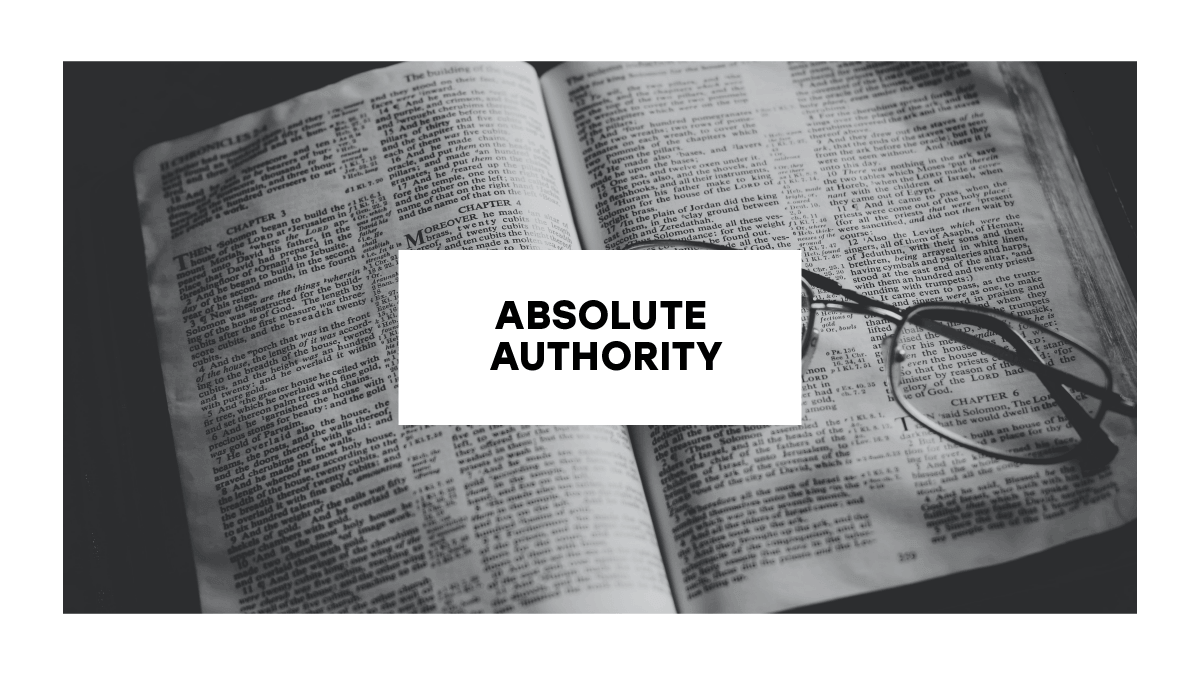There are two kinds of authority in the world; one is godly and the other is ungodly. Overpowering others with unbridled force, bullying, cruel domination and tyrannical oppression are pictures of ungodly authority. Ungodly authority can also be wielded using the powers of manipulation, coercion and legalism through any position or title given to an ungodly person. Any person who is under the domination of ungodly power will be an abused victim at some level. Multitudes of individuals have suffered in a wrong marriage, under an evil parent, teacher or boss. Entire nations are reeling under the tyranny of ungodly dictators who have imprisoned, tortured and killed millions of innocent people. Ungodly authority rises wherever people reject or abuse God’s authority. The old adage, ‘Power corrupts, and absolute power corrupts absolutely’, is true unless one has godly authority and is employing it according to the principles of Christ and His word. When godly authority is released, it is welcomed because it rights the wrongs, and sets everything up in a productive pattern so that all may prosper. God’s power and authority are absolute, and at the end of time, it will be the only authority on the planet. See Zec. 14:9.
Yielding to Christ’s Authority
Few disciples grasp the scope of the story where Jesus heals the centurion’s servant in Capernaum. The account is recorded in Luke 7. I encourage you to read it.
Jesus is living in the town of Capernaum which had a population of about 500 people. He had just finished preaching the most famous sermon in history, the sermon on the mount, and was now on His way home. As He entered the town, elders of the Jews came rushing toward Him. They pleaded with Jesus to come to the centurion’s house because his servant was sick and was about to die. They explained that the centurion was actually a good man because he loved Israel and had even built their synagogue. They thought this acknowledgment was necessary because centurions were not nice people in the eyes of the Jews. The Romans had occupied Israel for almost 100 years before this time and this centurion had been posted on the main east-west trade route, up on the hill, overlooking the town.
Centurion Authority
To better understand this story, we should learn some facts about the Roman centurions. They were called centurions because they had 100 men under their command. They were the physical strong arm of Rome and were used to fight wars build military infrastructure and maintain control over occupied territories. To be a centurion, one must be absolutely loyal and obedient to Rome, be a strong leader, and be ruthless in the use of force. Disobedience to a centurion meant instantaneous death, or incarceration. Even their own soldiers were whipped and beaten for the slightest infraction. By design, they were not nice people. They were the local government wherever they were stationed and they were feared because of their cruelty.
Like Cornelius of Caesarea, this centurion had been a station at Capernaum for years. He guarded the northeast region of Galilee. His palace-like home was high on the hill surrounded by his subsistence farm and dozens of servants. Below him, closer to the road, were the tents of his 100 soldiers and the barns for his cavalry horses and his livestock. On the other side of the road was Capernaum caressing the north shore of the Sea of Galilee. The Jews hated the Romans and especially the centurions, who were their enforcers. They had authority but it was ungodly.
This Centurion
After subjugating a region a centurion would mingle with the local VIPs to gain local allies and understand the community so he might fulfill his military role better. Over the years, this man had been greatly influenced by the people of Israel. He learned to love them and appreciate their amazing faith in the Living God. Out of his wealth he even built their synagogue. Still his loyalties remained with Rome and he did what was necessary to exert his authority and keep the entire region under the thumb of the Empire.
His servant was not a Roman, but a God-fearing Jew. Probably, over time, he became the centurion’s closest friend and his spiritual advisor and teacher. This cherished servant was now sick and near death, and with all of his authority he could not help him.
No doubt, it was this same servant who had told him about the miracles and the teaching of this Rabbi Jesus. From his mountain perch, the centurion had seen the massive crowds following the Lord, back and forth across the countryside. He watched carefully
when crowds gathered for fear of an insurrection, but Jesus was not rallying the people against Rome. On horseback he had listened to parts of his sermons from a distance and had sent soldiers to attend a few of Christ’s teaching sessions to gather information. He had even seen miracles. Now, the proud centurion was desperate and he knew he needed a level of authority that he did not possess. He knew that one of the few people who did not fear him was Jesus, so he could not force Him to help. His best design was to solicit the help of his Jewish religious friends, some elders of the people. His approach paid off, for Jesus responded, and headed up the mountain, toward the centurion’s home, and as usual, a great crowd followed Him.
Understanding Authority
When the centurion saw the crowd, led by Jesus, coming up the steep hill toward his home, he was elated but he realized he had a problem. First of all, he did not want to face the people over whom he wielded authority to let them see him in a position of weakness. Secondly, he was ashamed of his ruthless behavior and of his evil past. Quickly, he sent some friends rushing down the hill to talk with Jesus. They conveyed his words saying, “Don’t trouble yourself, for I do not deserve to have you come under my roof. That is why I did not even consider myself worthy to come to you. But say the word, and my servant will be healed. For I myself am a man under authority, with soldiers under me. I tell this one, ‘Go,’ and he goes; and that one, ‘Come,’ and he comes. I say to my servant, ‘Do this and he does it.” Lk.7:6-8
The centurion was telling the truth when he said he was unworthy. To become the centurion over this region, at the crossroads of the world, required slaughtering many people in cold blood, at some time or another. He had definitely shed innocent blood. He explained that he did everything because he was under authority and was doing his job. Then he shifted and told the extent of his own authority. He emphasized the fact that he had control over soldiers and servants, but acknowledged that he did not have absolute authority. He could not heal his servant. Inadvertently, he confessed that Jesus had absolute authority and asked for His help.
The Teaching of Jesus
The Lord stopped His journey up the hill and used this as a teaching moment to speak to the crowd. He actually honored the centurion, telling of his great faith in understanding the power that Christ possessed. The servant was healed as Jesus spoke the word.
The contrast between God’s authority and the authority of man became very clear. Ungodly authority does not last and will always fail in the final test. The God of Israel has all authority and our reliance should always be on the Lord Jesus.
Today, we see these two types of authority in the world and each of us has a choice to come under one or the other. It is who you serve and to whom you give your allegiance to that determines whose authority you are under.
There are many good people in the world, but ultimately man will fail you. Trusting in the Lord is the only course of action that makes sense, He is the only one with absolute authority.







Leave a Reply